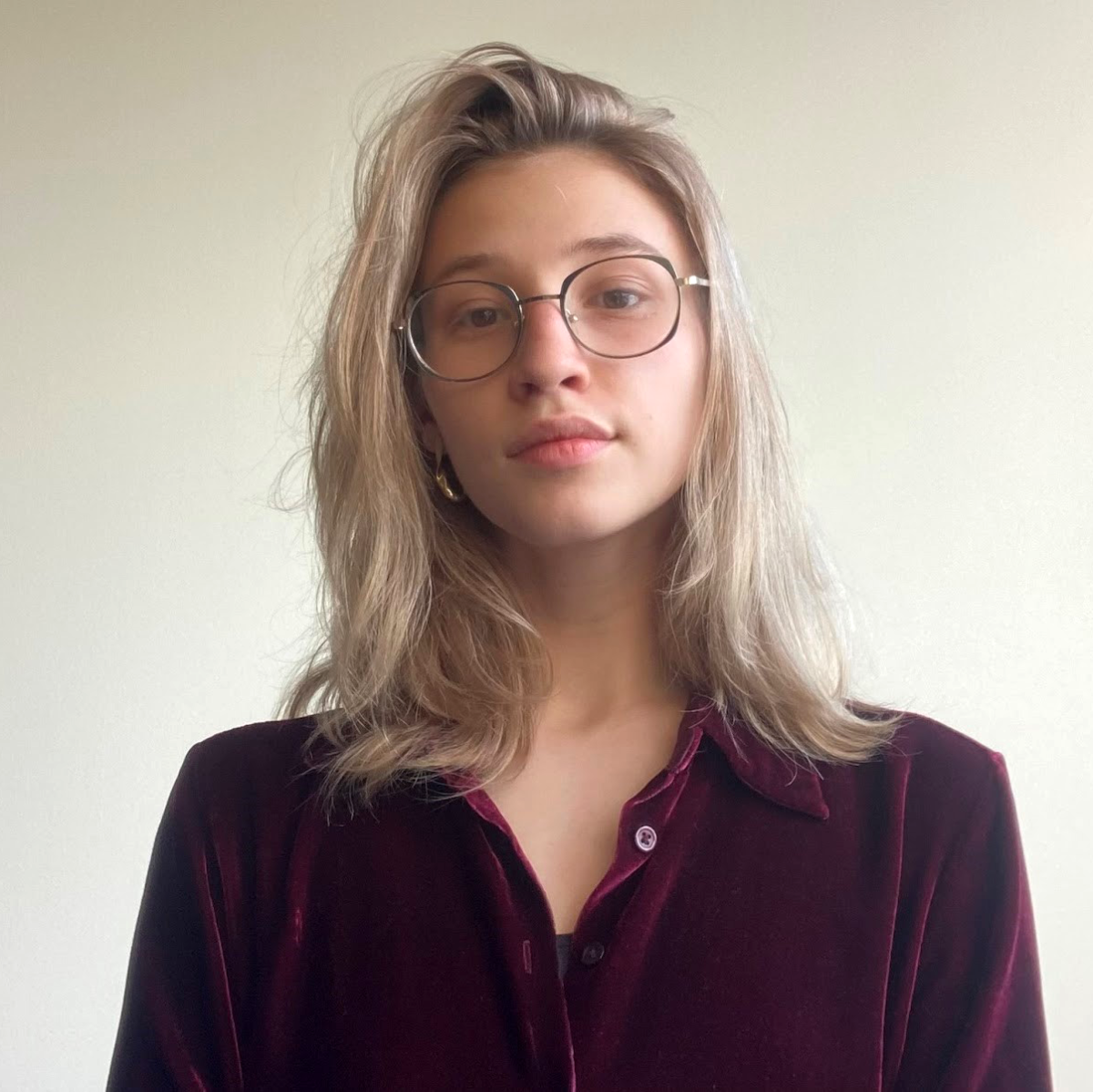CSpotlight: A testament to strong mentorship

From day one on campus, B.S. student Elsa Forberger recognized the value of mentorship from her professors and classmates. She received guidance from her research lab, the CSE Ambassadors, and a variety of other student groups. Now she's paying it forward, mentoring K-12 students through Code the Gap, with the ultimate goal of teaching the next generation of computer scientists.
Why did you choose to study computer science at the University of Minnesota?
When I was looking at colleges, I attended an event for prospective students hosted by the Minnesota chapter of ACM-W. This gave me the chance to meet with professors and chat with current students.
I remember talking to professor Stephen Guy about his research, which was super interesting to me, since at the time I was really focused on video games. It was because of Professor Guy that I came to University of Minnesota.
How did you become interested in computer science?
My dad knows a bit of programming, and as a kid I was really impressed by that, as well as pop culture depictions of programmers (such as from the movie Tron). So when I was in high school, I took an intro computer science course. I really enjoyed the abstract problem solving aspect of programming, and it just grew from there.
Tell us more about your research experience in the Applied Motion Lab.
I was given an Undergraduate Research Scholarship (URS) when I came to the university. Based of conversations with Professor Stephen Guy, I knew I wanted to do my research in his lab—the Applied Motion Lab.
However, I didn’t start it right away. I spent a year just attending lab meetings and learning, which was incredibly useful. Even though it means my research started later and is not yet done, I felt more prepared for it, and had a better idea of what I wanted to research.
My research focuses on characterizing the issues that come up when you use a navigational neural net trained in a simulation of a robot in the real world. Because of innate quirks of reality and mechanics, what the robot expects to happen based on the simulation doesn’t quite line up with what happens in the real world. The question I’m exploring is how to account for this difference.
How did you become part of the REU program at Carnegie Mellon University?
My time with the Applied Motion Lab also got me interested in research and graduate school. Because of this, I applied for an REU (Research Experiences for Undergraduates) at Carnegie Mellon for summer 2020.
Although it was virtual because of COVID, I still got work alongside another undergraduate student and two graduate students to do research. We also successfully submitted a paper on our research, "Social Robots in Service Contexts: Exploring the Rewards and Risks of Personalization and Re-embodiment," to the 2021 ACM Designing Interactive Systems Conference.
Getting to see the whole of the research process—from piloting, generating claims, designing the study, and writing the paper—was invaluable, and has helped prepare me for my post-graduate studies.
Tell us about your experience with student groups on campus.
I was heavily involved with ACM-W (Association for Computing Machinery for Women) my freshman year. This was my introduction to the University of Minnesota, and I met my first friends in college through ACM-W events.
Lately, I've been putting more time into the Rocket Team, where I’m the Firmware subteam lead, and Code the Gap, where I’m one of the volunteer instructor coordinators.
Code the Gap is a club started in this past year by computer science students Swati Rampalli and Sree Pemma. It seeks to teach coding to K-12 students in the Twin Cities, with the goal of making coding more accessible and the computer science field more diverse. It's been a wonderful experience to be involved with this group. I was lucky enough to have lots of support in pursuing computer science, and working with Code the Gap is a way for me to pass that onto others.
What advice do you have for incoming computer science students?
Mentorship! As a freshman, I had a mentor through the CSE Ambassadors program. She was really useful when it came to picking classes, learning about things I could do, and generally supporting me during that first year. I stayed in contact with her beyond our formal mentor/mentee relationship, and she helped me the following year too.
Because I wanted to pass that on, I’ve been a mentor for two years now. It’s been a wonderful experience, and it’s been really cool to see my mentees get on top of things (especially impressive considering the pandemic). Even if it's not a formal program, if you know an older student who is willing to sit down with you and talk about how your life is going, give you advice on classes, or help with whatever else you need, I strongly recommend it.
What are your plans after graduation?
I’ll be applying to robotics master's programs soon and I’m very excited for the next step in my education. I’m actually strongly considering staying at the U for grad school, since there is a brand new robotics program here! My long term goal is to teach—I owe a lot to the professors, teachers, and TA’s that have helped me, and I would like to pass that on.